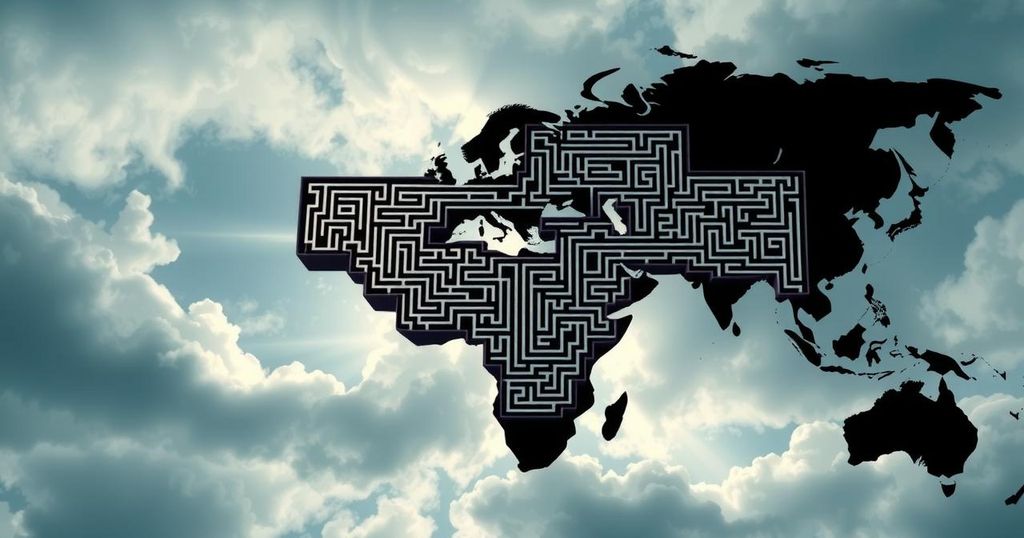Ecuador’s Election: A Potential Shift Towards Leftism and its Implications for the U.S.

Ecuador’s recent elections suggest a strong possibility for the leftist candidate Luisa Gonzalez to defeat center-right Daniel Noboa in the upcoming runoff. With Gonzalez closely aligned with former President Correa, her potential victory poses challenges for U.S. interests and could lead Ecuador further leftward. Noboa faces urgency to tackle pressing issues such as violence and energy crises to regain support.
The recent election results in Ecuador, particularly the February 9 vote, present significant challenges for the United States and the preservation of democracy in Latin America. The leftist populist faction of former President Rafael Correa has outperformed expectations and now has a strong possibility of success in the upcoming runoff on April 13. Previously, many polls indicated that center-right candidate Daniel Noboa would secure an easy victory, yet he garnered only 44.2% of the votes, narrowly trailing Correa ally Luisa Gonzalez, who received 43.9%.
The third-place candidate, Leonidas Iza of the indigenous Pachakutik party, acquired 5.3% of the vote, signifying that his supporters may sway the outcome of the election. The stakes are particularly high given that a Correa-backed victory would likely steer Ecuador further leftward, endangering U.S. interests in the region. Gonzalez is a staunch supporter of Correa, possessing strong ties to the socialist movements in Venezuela and Cuba.
Jamil Mahuad, a former president of Ecuador, noted, “She is in tune with the socialism of the 21st century movement,” indicating that a victory for Gonzalez may lead to closer alliances with leftist groups and BRICS nations. Correa’s presidency from 2007 to 2017 was marked by hostility towards the United States. His tenure included the closure of a U.S. anti-narcotics base and legislation perceived to have facilitated organized crime.
Santiago Basabe, a political scientist from San Francisco University of Quito, expressed that candidate Gonzalez holds the upper hand in the runoff. Noboa and Gonzalez’s combined votes from the first round accounted for nearly 90%, and with Pachakutik likely backing Gonzalez, the dynamics favor her campaign. Basabe observed that, “There is only about 10% of the vote up for grabs,” suggesting Gonzalez could effectively capitalize on indigenous group support.
In contrast, Jaime Durán Barba, an Ecuadoran political consultant affiliated with Noboa, voiced surprise at the result, as all predictions indicated Noboa’s broader lead. While he remains confident in Noboa’s potential success, he emphasized the non-monolithic nature of Pachakutik voters, who prioritize cultural identity over left-right ideology.
Noboa faces urgent challenges to address escalating drug-related violence and a growing energy crisis that have emerged as pressing concerns for Ecuadorians. The nation experienced a record number of homicides in January alone. To reverse his fortunes, Noboa will need to engage indigenous voters and implement decisive measures against criminal violence, while seeking support from the U.S. administration and allied Latin American states.
The timely actions of Noboa will be crucial in determining the election’s outcome, as many Ecuadorians harbor positive memories of Correa’s leadership during a time of economic prosperity fueled by rising oil prices. However, they often overlook the corruption and mismanagement that characterized his tenure, which has led to current challenges. Should Gonzalez prevail, Ecuador could become a significant complication for U.S. foreign policy and regional stability.
In summary, the forthcoming runoff election in Ecuador carries considerable implications for U.S. interests and democracy in Latin America. With the leftist candidate Luisa Gonzalez in strong contention, her potential victory could pivot Ecuador towards increased alignment with populist leftist regimes. Daniel Noboa must rapidly address crucial issues like drug violence and energy shortages to enhance his chances of overcoming Gonzalez’s challenge. As the election approaches, the stakes for both Ecuador and Washington remain critically high.
Original Source: buenosairesherald.com








